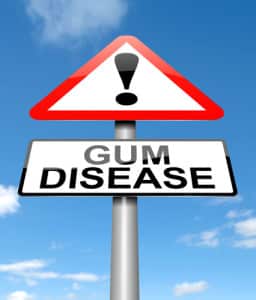 The onset of gum disease can take time, gradually worsening the longer it’s left untreated. However, if you’re able to catch it in the early stages (like gingivitis, for example) it’s usually easier to treat. This isn’t always possible, but once you’ve noticed something isn’t right with your mouth, you should visit your dentist. How do you treat gum disease? There are several different ways your dentist may choose to go about tackling your gum disease once and for all. What they decide will depend on your individual case and how they think the infection could progress.
The onset of gum disease can take time, gradually worsening the longer it’s left untreated. However, if you’re able to catch it in the early stages (like gingivitis, for example) it’s usually easier to treat. This isn’t always possible, but once you’ve noticed something isn’t right with your mouth, you should visit your dentist. How do you treat gum disease? There are several different ways your dentist may choose to go about tackling your gum disease once and for all. What they decide will depend on your individual case and how they think the infection could progress.
Your Treatment Options:
Scaling & Root Planing – This is a deep cleaning your dentist will usually perform first to try and get as much of the bacteria out of your mouth as they can. If you have a more severe case, they may recommend using medications in conjunction with a cleaning to attack the bacteria in two different ways. Depending on the severity of your infection, your dentist may need to pull back your gum tissue in order to get to infected areas.
Medications – Your dentist may recommend several different medications – an oral antibiotic mouth rinse, oral antibiotics, antibiotic topical gel, etc. For more severe cases, they may want you to use the antibiotic for a period of time to see if it helps your infection before trying an alternative route.
Surgical Treatments – Depending on how much damage the gum disease has already done to your mouth; you may need surgery. Often times, periodontitis can cause pockets around your teeth. Your dentist will be able to heal these gaps with pocket reduction surgery. In other cases, you may be significantly missing gum tissue or bone density. For this, your dentist may recommend bone or gum grafts.
Do you think your mouth could be suffering from an infection? Call your dentist so you can catch it quickly!







